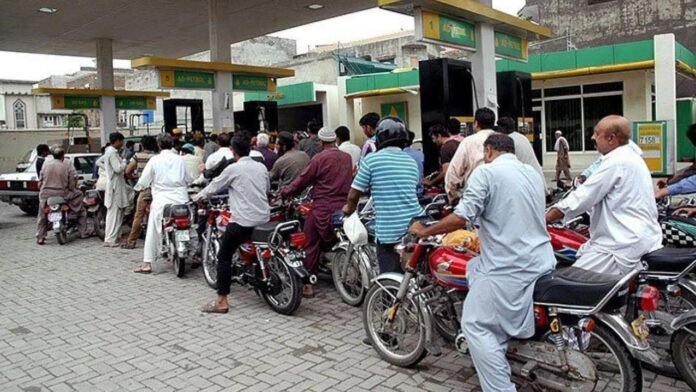Lahore: On the morning of July 5th, Pakistan’s rushed to gas stations countrywide following the Pakistan Petroleum Dealers Association’s decision to stop selling petrol at 6 a.m.
Reports indicated that after the Association declared a strike in objection to taxes imposed on petroleum products by the government, many citizens responded by coming out for petrol. This resulted in traffic jams created by cars and motorcycles outside filling stations nationwide.
In some places, like Shahrah-e-Faisal in Karachi and others, various pumps had stopped selling long before the strike started officially. As the strike continued, it became more difficult for individuals to fill their automobiles with fuel as more gas outlets closed due to running out of fuel.
The government’s successful discussions with the Petroleum Dealers Association resulted in the closure of gas stations. This action was done in response to unresolved issues over tax levying during meetings with several high-ranking government officials, including the Chairman of FBR, the Chairman of OGRA, and the Minister of Finance.
The death of an influential figure within the Petroleum Dealers Association temporarily delayed a planned protest in Islamabad. However, thousands of fuel dealers across the rest of the country closed down their pumps, affecting operations.
Abdul Sami Khan, President of the Petroleum Dealers Association, has suggested that. This strike may extend beyond one day if the government does not change its tax policy. He stressed that around fourteen thousand dealers throughout Pakistan are participating in shutting down their gas stations. Which indicates how widespread it has affected people.
Forceful closures at petrol filling points have also exposed deep underlying concerns regarding taxation policies. The petroleum industry vis-à-vis business viability. Such a position the association takes mirrors general dissatisfaction among stakeholders. The increasing economic burden for oil sellers amid rising global oil prices.
Consequently, there are fears over the sustainability of fuel supply nationwide during this continuing strike. Its effects on everyday life and economic activities. Suppose there is no settlement between the government and the Petroleum Dealers Association. People prepare themselves for possible transport and commerce disruptions.
To address the petroleum industry’s industry, the government has promised to hold more talks with it. Yet, with negotiations stalled and no quick fix in sight, there is still doubt about fuel availability and pricing. Thus revealing how fickle Pakistan’s fuel situation is, citizens are advised to save fuel. And plan their trips well despite all this confusion. This stand-off between the government and oil dealers will undoubtedly have far-reaching implications for Pakistan’s PakPakistan’suPakistan’sd policies.


